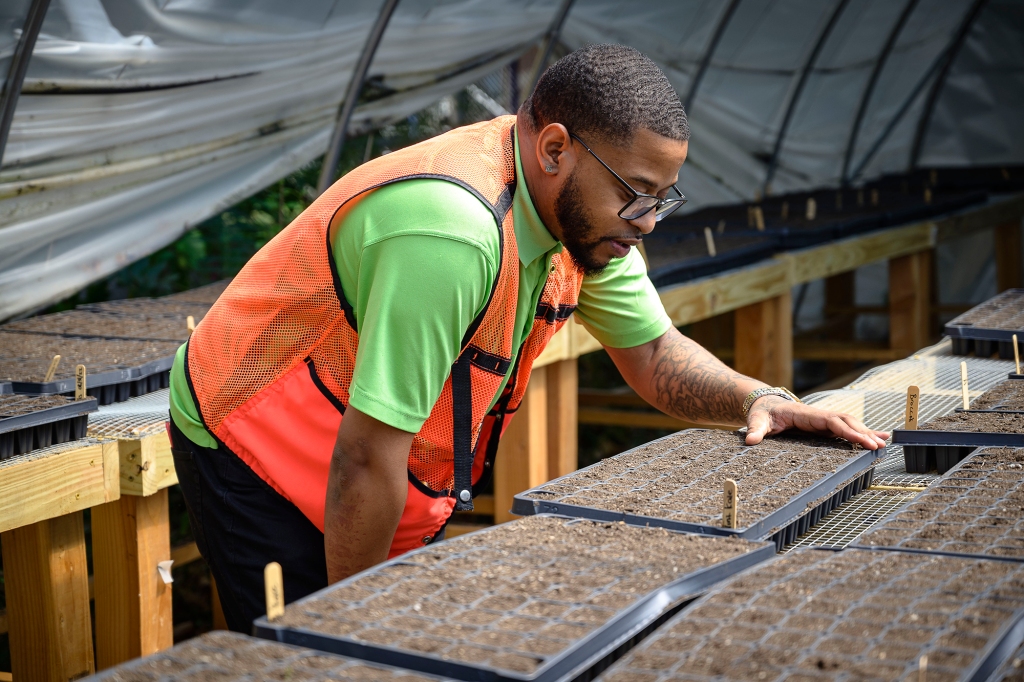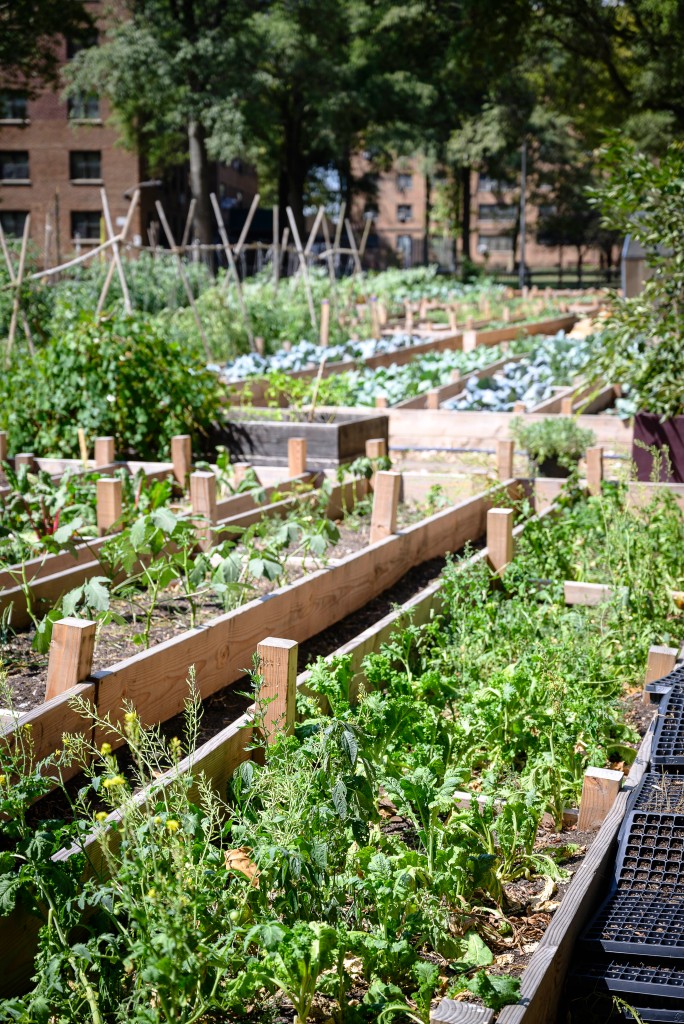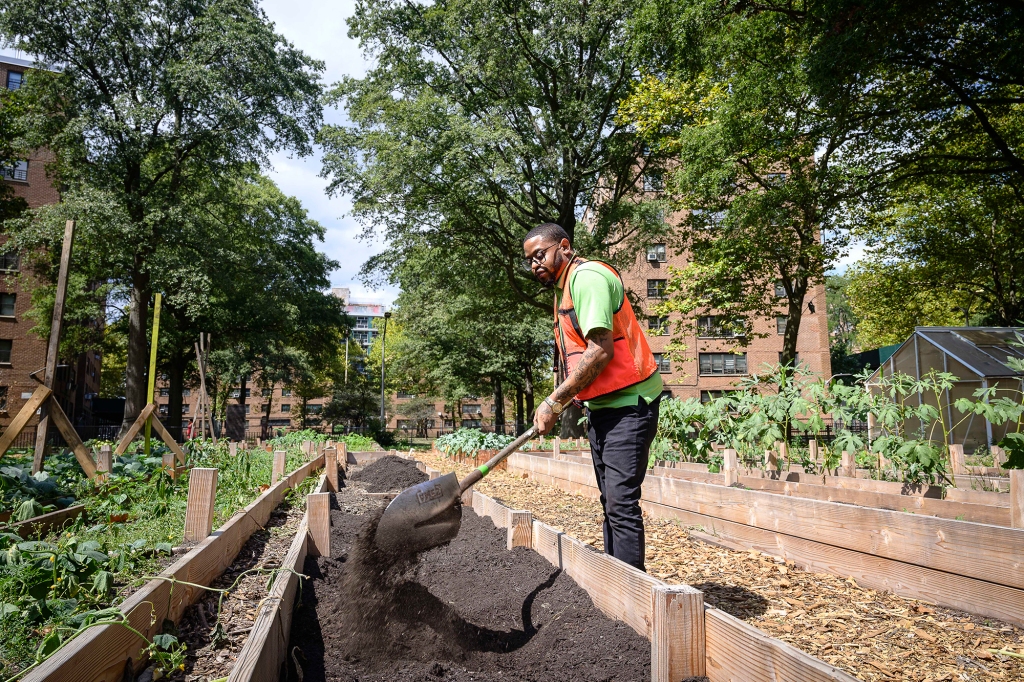Organizations train New Yorkers for sustainable industries
Kermit was wrong — it is easy being green, thanks to local programs that provide free training for scores of jobs in the burgeoning environmental and sustainability sectors.
These careers continue to soar in expansion. According to LinkedIn’s Global Green Skills Report 2022, the number of US jobs in renewables has increased by 237% during the past five years.
Green City Force, an AmeriCorps nonprofit in Bedford-Stuyvesant, is tapping into that expansion. They train 18- to 24-year-olds with high school diplomas or equivalency, and who reside in the New York City Housing Authority, in a structured program that lasts several months.
This includes classroom training and community projects in green infrastructure, and participants receive a $900 stipend twice a month, plus free monthly MetroCards.
Through the program’s career and alumni services department, participants meet employers and land jobs that typically pay between $17 and $30 an hour to start; some ascend to earn annual salaries of up to $90,000 as project managers.
Joshua Owens, 30, director of social enterprise operations at Green City Force, runs and organizes state contracts across the boroughs, and first participated in the program himself in 2014.
“I was blown away,” he said. “It felt like a college course, with so much information with sustainability across all fields — energy work, how to preserve resources, water conservation, urban farming, garden builds.”
The course also gives back to the neighborhood.
“It meant a lot to be something positive happening within my community,” said Owens, who feels empowered by the program, since he can now move anywhere in the industry by leaning into his technical skills. He also exhibits the soft skills of willingness to learn and listen — valuable competencies that employers covet.
Last year, Gary Lambert, 28, participated in NYC CoolRoofs, a free program from the NYC Department of Small Business Services in collaboration with several organizations, offering training, certification and work experience installing energy-saving reflective rooftops.
Since its 2009 inception, it has coated 11 million square feet of New York City’s rooftops in heat-vulnerable neighborhoods to reduce roof temperatures, reduce internal temperatures, reduce carbon emissions and improve air quality.

“It was a way to better myself for employment and help me gain certifications for the Occupational Safety and Health Administration (OSHA), site safety training, first aid and CPR,” said the Fort Greene resident who previously worked in maintenance in residential high-rises. “This gave me the necessary tools to get a foot in the door.”
In addition to learning about green infrastructure and cool roof installation, Lambert nurtured close connections with his 28 colleagues and leaders in his 10-week cohort.
New York City residents 18 and older, who are unemployed or underemployed, are eligible to apply, but must meet requirements like the ability to carry 50-pound buckets.
Participants’ pay varies by position, but typically starts at $15 an hour. The post-program intent is to transition into employment by tapping into the virtual Workforce1 Career Center System, which offers free job readiness, employment connections and support.

In August, Lambert was hired as an assistant crews advisor at a workforce development organization, the HOPE Program, which offers New Yorkers sustainable job training, skill development and job placement. “What I liked about it most was how informative and supportive the people inside the program are,” said Lambert. “They’re always coaching. It’s more than just a program, it’s a family.”
Ultimately, all these organizations are a boon to participants, the environment and New York.
“Our CoolRoofs program trains and connects New Yorkers to good jobs, building our economic recovery while advancing the city’s environmental goals,” said Kevin D. Kim, commissioner for the NYC Department of Small Business Services. “This program helps reduce energy consumption and curbs the urban heat island effect, helping New York City to get closer to carbon neutrality by 2050.”

Jason Feifer, editor-in-chief of Entrepreneur magazine and author of “Build for Tomorrow: An Action Plan for Embracing Change, Adapting Fast, and Future-Proofing Your Career” (Harmony), believes that these kinds of programs are incredibly important.
“They are filling that most important gap in economic transitions,” he said. “We need to be able to train people in new industries because where there is growth, there is going to be opportunity and demand for great talent.”
Feifer said it’s a win-win situation. “We will be doing the workforce, the economy and the Earth a great service by making sure people are trained for these jobs.”
This is also good news for people looking to forge a new path, like Susan Ehrler, 54. After working for nearly 11 years as a database administrator, the Roslyn Heights, LI, resident became a certified welder while working with her husband at their heavy equipment repair shop.
Now, she’s attending Farmingdale State College full-time to earn a dual bachelor’s degree in architectural engineering and construction management engineering.
Ehrler also enrolled in their GE wind turbine technical training, a free five-week course, to become a wind turbine technician. She’ll earn the wind microcredential in spring 2024.
“We learned the parts of a turbine, had a safety course, learned to maintain the turbine, and did two weeks of schematics and trouble-shooting,” said Ehrler. At the end of each module, she was tested and received completion certificates. “It’s definitely the future of sustainable energy.”
Ehrler wants to incorporate these skills and green building protocols into her next job as it unfolds. “I’m open to any direction,” she said. “There’s so much going on.”
Read the full article Here


